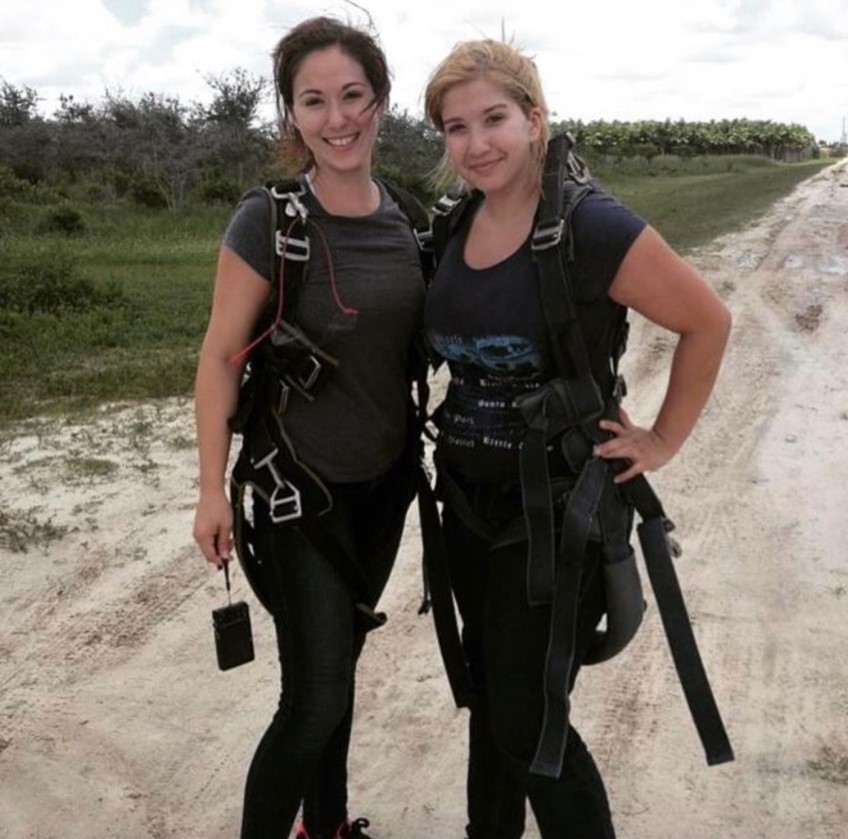Paulie Martinez, a single mom of two, wakes up at 5:30 a.m. on weekdays to get her two boys ready for the day. She makes coffee for herself and gives her sons a muffin or bagel. When she finishes packing their lunch, she changes her youngest’s diaper and then walks the dog before running out the door. She drops off her youngest, Emmitt, at daycare at 7:15 a.m. and her oldest, Evan, at VPK by 7:40 a.m. Martinez pays $900 per month for Emmitt’s daycare and $120 per month for Evan’s aftercare.
“At this point, about thirty-five percent of my salary goes just to childcare,” Martinez said.
The Department of Health and Human Services considers childcare affordable if it takes less than seven percent of the household’s income. The Miami Herald reports that after rent, childcare is the biggest expense for a family in Miami-Dade. In the case that the cost gets to be too burdensome, it’s likely that one of the parents will take time away from work and stay home to take care of the child, and it’s usually the mother who makes that sacrifice. But this isn’t an option for some moms.
Martinez works as a school psychologist in Broward county and does some private practice on the side. She has a master’s degree in early childhood education and a doctorate in child developmental psychology. She says it feels rewarding to walk down the halls of the elementary and middle schools she works at and have kids greet her as “Dr. Paulie.” Even so, she sometimes thinks about delving more into private practice, but the thoughts of possibilities are followed by limitations.
“The more time it takes initially to invest into those things, the more time and money I have to spend on childcare and being away from my kids,” she said. “So it just doesn’t seem like a viable option to make more money until my kids are a little bit older and school-age where I’m not paying for their day-to-day things.”
Martinez’s younger sister, Lauren Wurtz, is also a single mom. (Wurtz is also a writer for the Caplin News.) When her daughter, Sophia, was in childcare, fifty percent of Wurtz’s salary was going towards those payments. She was paying $160 per week.

“I mean if you do the math, 160 a week for a month that’s like paying rent somewhere or like a mortgage,” Wurtz said.
At the time, Wurtz was working as a surgical coordinator for the burn trauma unit at Kendall Medical Center. When the pandemic hit, the Early Learning Coalition provided childcare services for first responders and healthcare workers who could not otherwise stay home with their children. The initiatives of the Child Care Providers Coronavirus Aid, Relief and Economic Security (CARES) Act brought Wurtz’s payments down to about $37 a week.
At the same time, Wurtz was juggling classes for her associate degree in Miami Dade College. She started in 2012 and graduated in 2019.
“It was very hard to define the balance between going to school and work,” she said. “Making money was more important to me because obviously, I wouldn’t be able to afford for her to be in daycare if it wasn’t for me not working.”
Sophia is in first grade now. Since Wurtz doesn’t carry a heavy cost for childcare anymore, she decided to quit work and focus on finishing her degree in journalism and communications. She is completing her last year as an FIU student. Still, she needs aftercare for Sophia. So she is enrolled in an aftercare karate program. It costs $67 a week and Wurtz’s boyfriend pays for it.
Alejandra Mendez, 21, is mom to one-year-old Ace. She is a private contractor and the assistant manager for Fox in a Box, an escape room downtown. After Ace was born she got a second job as a remote director of operations at Flips and Friends tumbling studio.
As a private contractor, Mendez didn’t get maternity leave, so she wanted to get back to work as soon as possible.
Jeannie Caicedo, finance director for the Florida Medicaid line of business at Humana insurance, explains the complications of not having paid maternity leave. For one, Florida doesn’t require companies to offer paid leave. If a mother extends her maternity leave past the standard 12-week period, she runs the risk of losing her job.
When Mendez felt ready to return to her job at four months post-partum, she and Ace’s dad faced the challenges of finding affordable childcare. Unable to find anything within their means, Mendez stayed home for two more months working only on weekends before starting the search again. At that point, she began at her second job and resumed looking for the least costly and closest option to where she and her boyfriend live in Coconut Grove.
Then the Uvalde school shooting happened. Mendez became more selective about the daycare her son would attend.
“My view of what I wanted in a daycare became completely different,” said Mendez. “Most of the schools that offer the type of security that I want… are way, way, more expensive than what we could afford. So the daycare that he’s currently at is kind of like a compromise.
Mendez and her boyfriend pay $975 per month for Ace’s daycare, which has security camera footage and requires getting buzzed in by employees to enter. They aim to split the cost halfway, but if she’s falling short then her boyfriend covers a little more. Mendez says that between both jobs, half of her salary goes toward daycare.
Speaking about how important work is to women, Mendez said, “Most of us don’t want to stop working. Most of us need to keep working.

Martinez and Wurtz, 33 and 28, respectively, have had each other’s backs through all the ups and downs of motherhood, but their bond was strong even before they became moms. When Wurtz turned 18, Martinez took her skydiving. Wurtz says their mindsets were different then because they didn’t have kids.
“It’s like, ‘What’s the worst that can happen? I die? It’s not that bad,’” said Wurtz. “But now it’s a little different because you’re like ‘if I die, who’s going to take care of my kids?’”
Correction: An earlier version of this story misstated Jeannie Caicedo’s and Ana Mendez’s last names and incorrectly described Mendez’s work history.
































